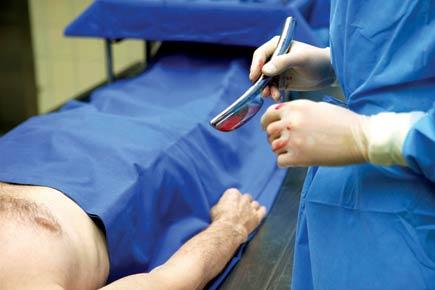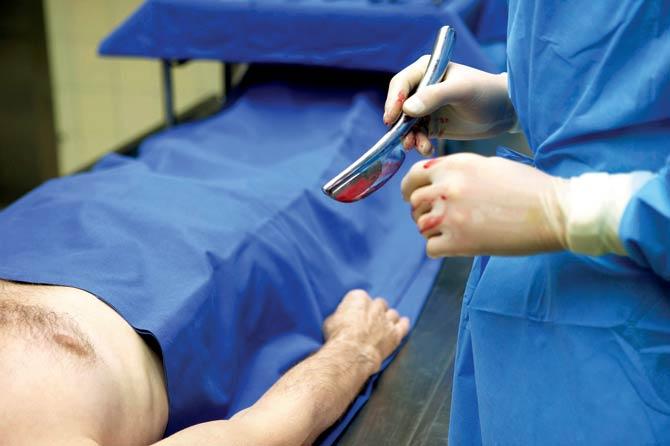The Wardha District Superintendent of Police issued directives to all police stations; while some say unnecessary autopsies are a waste of time, some doctors are sceptical

Some 630 km from Mumbai, a unique decision has been taken in Wardha district, regarding postmortems. To try and reform postmortem (PM) procedure, beginning from this month, the police have been asked not to send bodies for PM in each case of death which is reported to them.
ADVERTISEMENT

The Wardha District Superintendent of Police, Ankit Goyal, issued directives on Feb 29 to all police stations in Wardha. As per legal provisions, there is no need to do a postmortem to know the cause of death in most cases.
Experts said if the new instruction is followed across the state, this will not only save invaluable time of police and doctors but also prevent mental trauma to the people whose dead relatives are subjected to postmortem. However, they said they have not heard of any other district in the state following such a procedure.
Police decision
In Wardha, the investigating officers have been asked to prepare a report of apparent cause of death as per a modified inquest form. The police have been asked to decide whether to send the dead body for postmortem or not, strictly as per the provisions of 174 Criminal Procedure Code, as enumerated in the modified form. The form has guidelines as to when police should not insist on getting autopsy done.
According to Dr Indrajit Khandekar, in-charge of the country’s first Clinical Forensic Medicine Unit (CFMU) at the Mahatma Gandhi Institute of Medical Sciences (MGIMS), Sevagram - Wardha, presently police send dead bodies for PMs using the provision of 174 CrPC.
Dr Khandekar had brought to the notice of the chief minister, who also heads the home department that lakhs of unnecessary postmortems are carried out at the request of police for investigations.
“This overload of PMs is turning mortuaries into production-line abattoirs. As per legal provisions there is no need to do PM in most cases. Unnecessary PMs not only waste valuable time of police and doctors, but also cause tremendous trauma to relatives of the deceased,” Dr Khandekar told mid-day from Wardha. He said that the practice, if followed across the state, would improve quality of medico-legal investigation, help in increasing the conviction rate (Doctors who conduct postmortems will not be overburdened), and reduce the state’s expenditure.
A senior police officer recalled how relatives of students from Pune, who had drowned in Murud last month, were upset when all 14 bodies had postmortems when the cause of death was clear.
Shiv Sena MLA Ajay Choudhary from Sewri, had raised a question in the Legislative Assembly on Dr Khandekar’s report, and sought to know the action taken by the government. Following this, the home department had asked authorities to study this report.
Decision legal
Wardha SP Ankit Goyal said that the decision for the new procedure was within a legal framework. “The law specifies when we shouldn’t do the postmortem. We have also formed a district-level committee of experts and police officers to decide whether we should go in for an autopsy. There are guidelines in place for doing postmortem when required. We will follow our rule book while implementing the procedure,” he said.
The committee has the representative of the civil surgeon of Wardha, Dr Bandu Ramteke, and senior police officers, and Dr Khandekar as its principle coordinator.
 Subscribe today by clicking the link and stay updated with the latest news!" Click here!
Subscribe today by clicking the link and stay updated with the latest news!" Click here!






